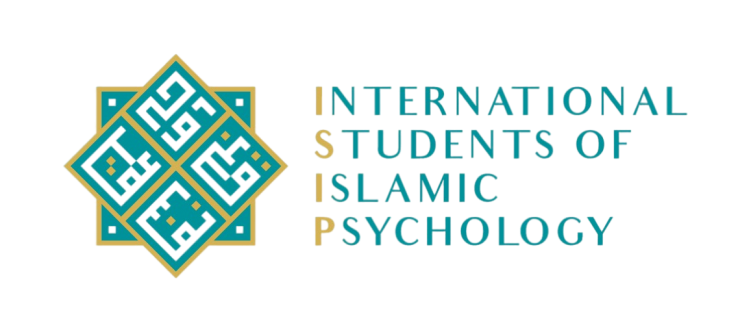
By Abubakar Haruna
This is the third component of Islamic psychology. The Islamic law known as Shariah plays a very important and central role in directing the behaviour and beliefs of Muslims.
Shariah is a central concept in Islamic psychology that provides guidance and structure for individuals seeking to live fulfilling and meaningful life. By following the principles of Shariah, individuals can cultivate a sense of well-being and connection to Allah and to others which is essential for achieving mental and spiritual health.
Shariah can also be seen as a source of guiding Muslim psychologists and mental health professionals, as it provides a framework for understanding and addressing the psychological and emotional needs of Muslims. This can also serve as a framework for the development of culturally sensitive approaches to mental health treatment for people. Shariah, however, plays a central role in the psychological well-being of Muslims by providing guidance on how to live a fulfilling, successful, positive and meaningful life in an Islamic context, norms, tradition, values and beliefs.
Moreover, Shariah is not the sole source of moral guidance alone, but it also provides a framework for understanding and addressing the psychological and emotional needs of Muslims.
In addition to the above, Shariah also provides guidance on how to deal with difficult emotions and challenges in life. Some examples include teaching the importance of seeking help and support from others when needed and encouraging the use of healthy coping mechanisms such as patience, forgiveness, and trust in Allah.
In the field of psychology, Muslim psychologists and mental health professionals draw on the teachings and practices of Shariah to inform their work of their patients. This can involve combining Islamic teachings, values and practices into therapy, as well as being sensitive to the religious values of Muslim patients.
Here are some examples of Implementing Shariah in Islamic psychology:
Moral Development: Shariah provides a comprehensive framework for moral development, which is a critical component of Islamic psychology. It emphasizes the importance of following divine guidance in all aspects of life, including ethical and moral decision-making. The Quran states, “And We have sent down to you the Book as clarification for all things and as guidance and mercy and good tidings for the Muslims” (Quran 16:89). Islamic scholars have developed a rich tradition of moral philosophy and psychology based on the Quranic teachings, such as the concept of Maqasid al-Shariah (the objectives of Shariah) and the virtues of Akhlaq (moral character). (Abdel-Khalek, 2015; Al-Qaradawi, 1984).
Psychological Well-being: Shariah also contributes to the psychological well-being of Muslims by providing guidance and support in dealing with mental health issues. For example, the concept of Tawakkul (reliance on Allah) can help individuals cope with anxiety and stress, while the practice of Salah (prayer) can promote relaxation and mindfulness. Moreover, the prohibition of harmful behaviours, such as alcohol consumption and gambling, can prevent the development of addictive behaviours and their associated psychological problems. (Mohamed, 2014; Sajjad, 2013)
Interpersonal Relationships: Shariah also guides Muslims in their interpersonal relationships, including family dynamics and social interactions. The Quran and Sunnah provide guidelines for marital relationships, parenting, and the treatment of neighbours, among other things. These teachings emphasize the importance of compassion, forgiveness, and justice in relationships, which can promote healthy communication and conflict resolution. (Keshavarzi & Haque, 2013; Sarwar, 2008).
Reference:
Abdel-Khalek, A. M. (2015). Islamic ethics of life and death. Journal of Religion and Health, 54(3), 917-927.
Al-Qaradawi, Y. (1984). The Lawful and the Prohibited in Islam. American Trust Publications.
Keshavarzi, F., & Haque, A. (2013). Islamic counselling: An introduction to theory and practice. Routledge.
Kirmayer, L. J., & Groleau, D. (2001). Affective disorders in cultural and historical context. In D. J. Stein, D. J. Kupfer, & A. F. Schatzberg (Eds.), Textbook of mood disorders (pp. 101–117). American Psychiatric Pub.
Mohamed, A. M. (2014). Islamic psychology: Emergence of a new field. Muslim World Journal of Human Rights, 11(1), 1-21.
Sajjad, S. H. (2013). Islamic perspectives on mental health. Journal of Religion and Health, 52(2), 351-363.
Sarwar, S. (2008). Islamic perspectives on interpersonal relationships. Journal of Muslim

Shariah is supreme and optimum in the field of Islamic psychology. Shariah laws and principles guide the contact of populace in a divine life. There is need for a Muslim to learn more about Islamic laws and principles to have pure life in Islam
Subhanallah, Mashallah 👍 an amazing write up showing the importance of shariah in Islamic Psychology and life of a muslim.
Absolutely, Shariah acts as a guiding force for muslims. When we have a structured guidance, boundaries and laws, we need not face much of anxiousness or confusion in our lives. We have a set boundary and a purpose to serve, hence making it easier for us to follow the guidelines.